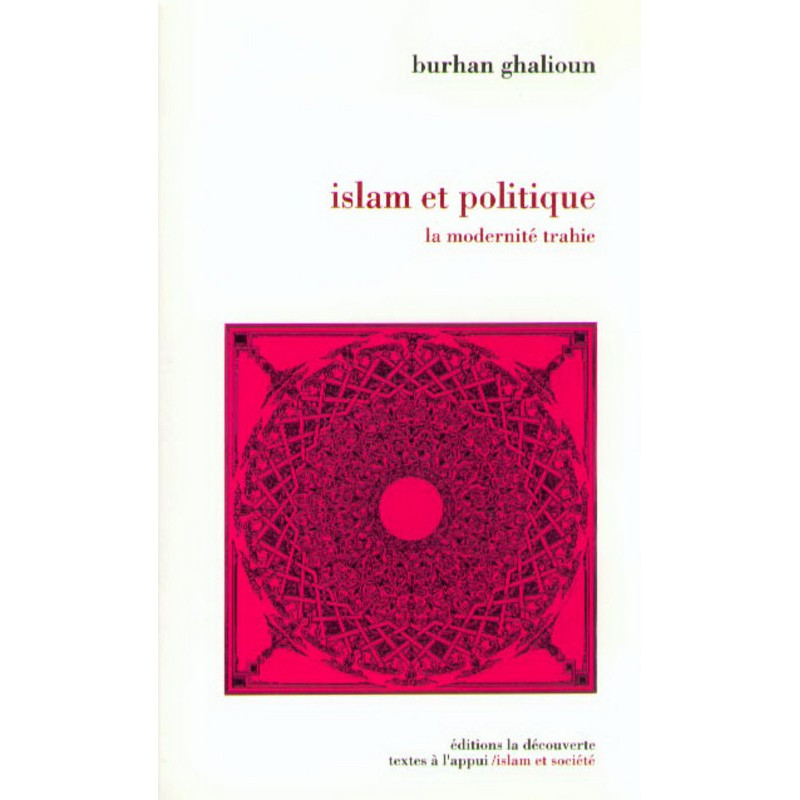

Promotions SANA: Jusqu’à -20%, Cliquez ici
Promotions SANA: Jusqu’à -20%, Cliquez ici
Islam and Politics: Modernity Betrayed by Burhan Ghalioun
Rampant state fascism, decadent populism, recurrent Islamist violence, even civil wars: many Muslim societies today are experiencing serious disorder. For some analysts, these can be explained fundamentally by the particularisms of Islam, which is essentially incapable of dissociating the religious from the political, and therefore prohibits access to modernity.
Burhan Ghalioun , in this book, radically refutes this analysis. It shows that, despite appearances, religion is no longer the main source of political reference points in these societies: it is indeed the modern values of freedom, equality and " individuality " that today inspire the model of citizenship, in the land of Islam as elsewhere. The current disorder is therefore not the inevitable heir of Islam, but rather the fruit of this “ lumpen modernity” which has perverted the essential ethical and political foundations of these societies.
Neither modernism, contrary to what the Islamists think, nor traditionalism, contrary to what the secularists believe, are at the origin of the current disorder. The cause is on the contrary the absence of a coherent critical thought. This uncompromising analysis leads the author to emphasize that no outcome is possible outside of a substantive debate – which this book helps to arouse – opening the way to a real change in democratic ethics, that of freedom and dignity.
Table of content
Introduction
- I. Historical Islam: the origin of a conflict
- 1. The religious order - 2. The heritage of Prophethood, or faith against the law - 3. The origin of the State in Islam: the caliphate - 4. Birth of the State: the great discord - 5. The political order - 6. The crisis of the traditional political model
-II . Islam and Islamism: the crisis of modernism
- 7. The truth of Islam - 8. The identity impasse - 9. The political impasse - 10. The economic impasse - 11. Islamism and radicalism
- III. Critique of secularism - 12. Of secularism in Islam - 13. Political secularism: emancipation from the state - 14. Secular consciousness: emancipation from reason - 15. Autocracy as theocracy - 16. Secularism as an ideology of State - 17. The limits of secularism
- IV. Critique of Islamism - 18. Of the Islamic State - 19. Between Shari'a and positive law - 20. Legal reason and religious intelligence - 21. Legal reason and political reason - 22. Beyond Islamism and secularism
- Conclusion: for a political renewal in the land of Islam.
About the Author: Burhan Ghalioun
Burhan Ghalioun is director of the Center for Contemporary Oriental Studies and professor of Arab civilization at the University of Sorbonne-Nouvelle-Paris-III. He is the author of numerous works in Arabic devoted to the political and sociological problems of the Muslim world. He has already published with Editions La Découverte, Le Malaise arabe: the State against the nation (1991).
Data sheet
Specific References
No customer reviews for the moment.